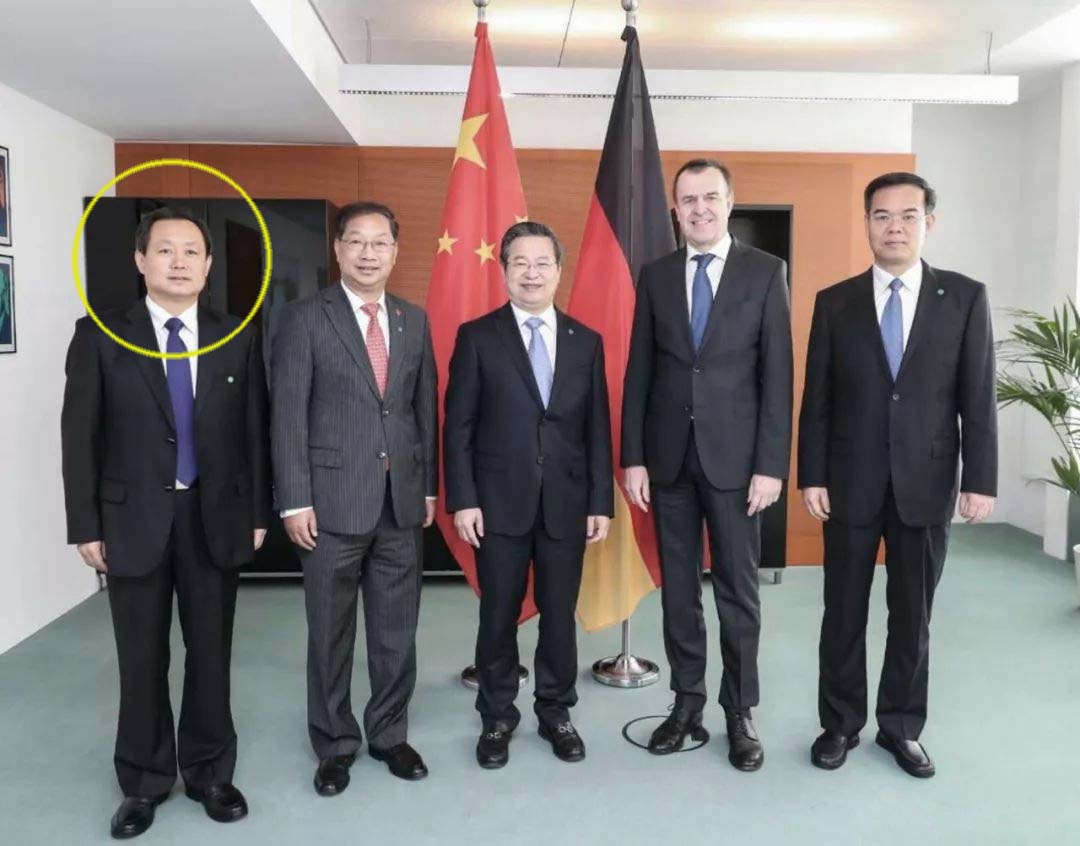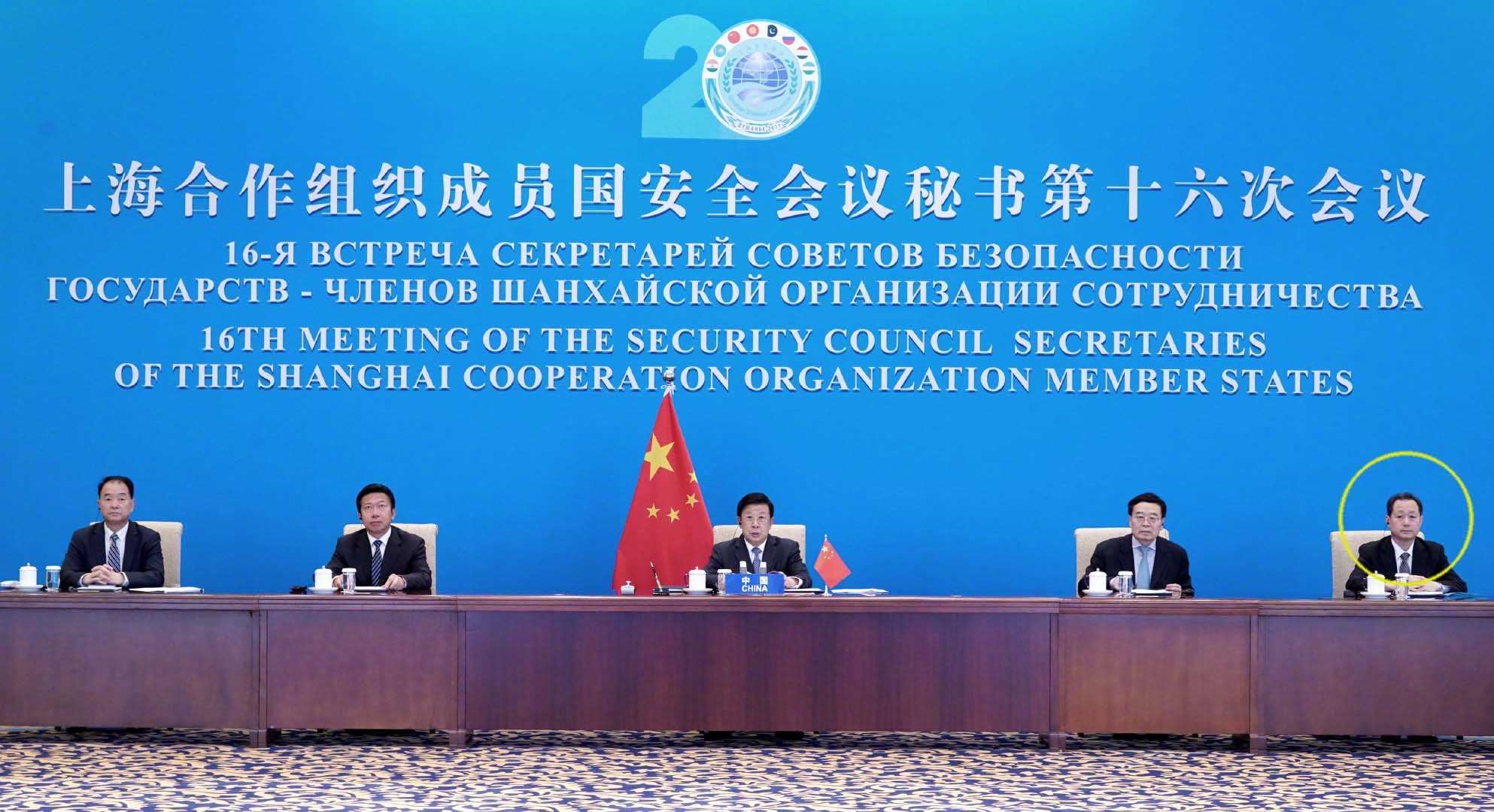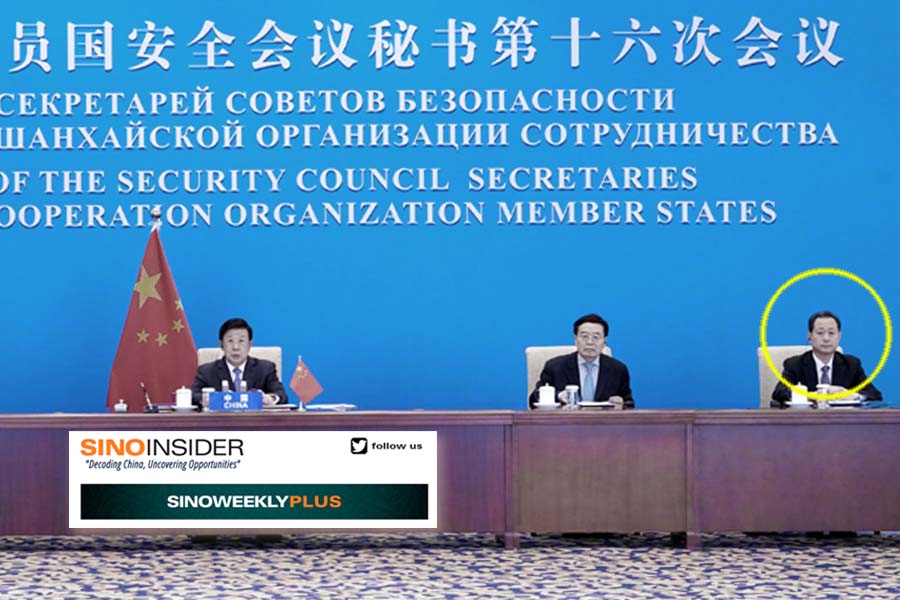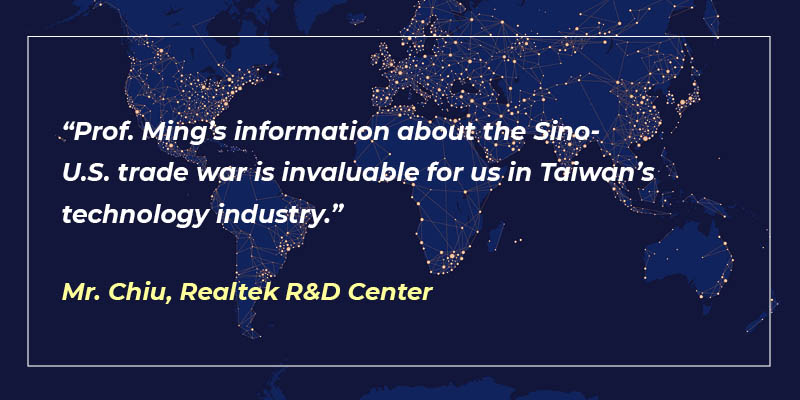◎ The following analysis was first published in the June 24, 2021 edition of our subscriber-only SinoWeekly Plus newsletter. Subscribe to SinoInsider to view past analyses in our newsletter archive.
Since the second half of 2020, there have been numerous rumors about Chinese defectors circulating in both English and Chinese language media and social media. Of the rumors, two stand out. Around the August-September 2020 period, a Chinese defector with knowledge of the PRC’s covert biological weapons program reportedly escaped to Europe. According to The Washington Times, the defector “believes that Chinese intelligence has penetrated the U.S. government and is therefore wary of cooperating with the CIA and other Western spy agencies.” And in the second week of June 2021, prominent U.S.-based Chinese pro-democracy activist Wei Jingsheng tweeted that PRC vice president Wang Qishan is the rumored defector; Wei later deleted his tweet.
Recently, the case of PRC Ministry of State Security (MSS) Dong Jingwei’s alleged defection made waves in the international community.
June 16
Prominent U.S.-based Chinese pro-democracy activist Han Lianchao tweeted that he heard “gossip” (小道消息) from a friend that Dong Jingwei, a vice minister at the PRC Ministry of State Security (MSS), had defected to America. The following day, Han’s tweet was picked up by the SpyTalk newsletter, and SpyTalk’s analysis was in turn widely re-reported and commented on by mainstream and conservative media outlets.
June 17
Conservative media RedState cited SpyTalk and unnamed sources as saying that Dong Jingwei is in fact the mystery Chinese defector with information about COVID-19’s origins and other intelligence that RedState had reported on June 4. RedState claims that Dong arrived in the U.S. in mid-February and has been working with the Defense Intelligence Agency for a few months.
June 18
1. “Chang An Jian” (長安劍), the official WeChat account of the Central Political and Legal Affairs Commission, reported that MSS vice minister Dong Jingwei had presided over a symposium to study and implement regulations on counter-espionage and work safety (反間諜安全防範工作規定) that were rolled out on April 26.
The symposium urged officials to do counter-espionage work well, and called on them to catch “spies,” “traitors,” and “behind-the-scenes funders” (幕後金主). The symposium also accused “behind-the-scenes funders” of bankrolling “hostile foreign forces” through illicit means to carry out “anti-China activities.” Xinhua, CCTV, and other mainland news outlets republished “Chang An Jian’s” piece about the symposium chaired by Dong Jingwei, and it was reported on without commentary by the Alibaba-owned South China Morning Post.
Many Chinese and English language observers view the June 18 “Chang An Jian” piece as an effort by the CCP to dispel rumors of Dong Jingwei’s supposed defection. They noted that it was very suspicious that reports of the symposium did not include photographs or videos of Dong’s appearance, and that he conveniently emerged in public barely a day after“bombshell” reports of his “defection” in Western media.
2. On June 18, CCP General Secretary Xi Jinping and other Party and state leaders in Beijing (Politburo, CMC, CPPCC leaders, leaders of democratic parties, etc.) visited the newly inaugurated CCP Museum to view an exhibit on Party history. Xi later led the leaders who were Party members in an oath-taking ceremony.
According to state media reports, Xi stressed that “the Party’s history is the most vivid and most convincing textbook.” He called on all Party members and cadres to observe and study Party history to “maintain a high degree of unanimity from the beginning to the end with Party Central in the realm of ideology, politics, and actions.”
June 19
The Central Commission for Discipline Inspection published a lead article on its website titled, “Never Betraying the Party Is Not Just an Oath” (永不叛黨不僅僅是一句誓言) under its “Review the Classics and Move Forward Amid Adversity” (重溫經典 砥礪前行) section.
The article revisited the case of Gu Shunzhang, a notorious early CCP leader from Shanghai who oversaw Party Central Committee security, intelligence operations, and the extermination of Party traitors. Gu was apprehended by Kuomintang intelligence in April 1931 and became a Party traitor himself by divulging the CCP’s Shanghai intelligence networks and leaders. However, important Party leaders like Zhou Enlai were able to escape the KMT because they received early notification from communist intelligence assets in the upper echelons of the KMT who caught wind of Gu’s defection and betrayal.
In May 1931, Zhou helmed an effort to wipe out Gu Shunzhang’s family members and relatives, which led to the murder of 39 people. The CCP Central Committee later issued “No. 223 Notice” in December 1931, a document noting Gu’s expulsion from the Party and calling on the entire CCP to “destroy Gu Shunzhang, enemy of Chinese workers and peasants, and traitor to all of communism,” as well as “struggle against all traitors.”
Gu Shunzhang vanished in 1934 and the KMT later announced that they had executed him by firing squad in December that year on the orders of Generalissimo Chiang Kai-shek for supposedly founding a “New Communist Party.” The CCP claimed that the KMT secretly executed Gu because he was no longer of value to them. According to various accounts, the elimination of Gu could have been a CCP “inside job,” i.e. Gu was set-up for a fall by CCP infiltrators in the upper ranks of the KMT intelligence service.
June 22
SpyTalk wrote in a newsletter a U.S. government official told them that reports of Dong Jingwei’s defection are “not accurate,” while hinting that the MSS vice minister is in China.
June 23
Dong Jingwei made a public appearance alongside PRC public security minister Zhao Kezhi and three other Beijing officials at the 16th meeting of the Shanghai Cooperation Organization Security Council Secretaries (see photo and video). The PRC delegation participated in the meeting virtually.
OUR TAKE
1. Persistent rumors of a Chinese defector in recent months, Beijing’s warning about “never betraying the Party,” and Dong Jingwei’s subsequent public appearances in the days after the international community began to speculate on his defection suggest that a defection did occur.
Dong, however, was unlikely to be the defector from the get go. The CCP closely controls and monitors its senior officials (vice provincial/vice ministerial level and above) and their family members precisely to guard against defection and ensure their loyalty. Senior officials in the MSS are almost certainly subject to even tighter scrutiny given their critical function (intelligence) and the paranoid CCP learning from its past mistakes. State Security officials with questionable loyalties or are not “compromised” (i.e. involved in wetwork, human rights atrocities, or other damning activities that give Beijing leverage over them) in some way will unlikely rise to Dong’s rank in the first place. In contrast, more junior ranking officials (bureau level and below) would find it relatively easier to flee.
In the case of an actual defection, the CCP would either stay silent about it (including stepping up censorship of the defector’s name and denying knowledge of the defector), or go on the offensive by smearing the defector (“fraudster,” “wanted criminal suspect,” etc.) and accusing the person of “fabricating” intelligence (see here and here for the Wang Liqiang case in 2019). The CCP would not risk staging a fake public appearance by the defector only for the propaganda to backfire spectacularly later should the defector make an actual public appearance in the country of defection.
Meanwhile, the lack of accompanying photos or videos in CCP articles about Dong Jingwei’s June 18 symposium was not as suspicious as it may seem. It is not unusual for the CCP to conceal the identity of its intelligence operatives where possible. Mainland media reports typically provide only the names of MSS officials in reports where they are mentioned and they very rarely appear in photos or videos. Available résumés of MSS officials are also usually very brief and do not contain photos. Further, State Security officials are not typically identified when they do appear in photos, as in the case of Dong Jianwei accompanying Central Political and Legal Affairs Commission secretary general Chen Yixin in meeting German security officials in September 2018 (first photo after this paragraph; Dong is first from the left, but is not identified in the photo caption), and Dong attending the Shanghai Cooperation Organization Security Council Secretaries meeting on June 23 (second photo after this paragraph; Dong is first from the right, but is not identified in the photo caption). On a side note, Han Lianchao’s original tweet about Dong Jingwei’s supposed defection featured a photo of a retired official who happens to have the same name as the MSS vice minister.


In assessing the rumors of a Chinese defector that emerged last year and the CCP’s actions after news of Dong Jingwei’s “defection” started making waves abroad, we believe that an actual defection did occur. It is very possible that the bulk of defector rumors are classic CCP disinformation operations designed to muddy the waters on the topic and ruin the credibility of the international media, Chinese dissidents, and world governments. So should the real defector go public, the CCP can simply trot out “debunked” defector cases to argue convincingly, “why should we or the world believe this so-called ‘defector’ and what biased, discredited, conspiracy-minded foreigners have to say?” We believe that the rumors, as well as the “Chang An Jian” piece about Dong’s symposium and his June 24 public appearance, are part of a pre-emptive, broader move to discredit the CCP’s opponents. However, the fact that the CCP needs to put out defector disinformation in the first place hints at a cover-up; there is no smoke without fire.
If there was indeed a recent PRC defection, the person is more likely to be at the bureau rank or below, where CCP control over officials is less strict. Having a lower rank, however, does not mean that the defector will provide less valuable information. On the contrary, lower ranking officials are closer to actual operations and may be more familiar with matters that senior officials (including Xi Jinping) may not know, such as sensitive research at the Wuhan Institute of Virology or other intelligence of geopolitical significance.
If the defector was a senior official, the real reasons for defection would highly unlikely be over “moral and conscience,” and would more probably be connected with factional struggle and clashing personal interests.
2. Cautioning defectors and would-be defectors aside, Dong Jingwei’s June 18 symposium also spotlighted the CCP’s problems with anti-Party movements abroad with a reference to so-called “behind-the-scenes funders.”
We look at two recent developments:
a) In May, the provincial governments of Jiangxi, Guangdong, Guangxi, Fujian, Zhejiang, Guizhou, and Sichuan issued a notice on “persuading lingering persons in northern Myanmar to return” to the mainland (勸返滯留緬北人員的通告) with the goal of cracking down on internet and telecommunications fraudsters. The notice warned that Chinese nationals in northern Myanmar who refuse to return to the mainland by June 30, 2021 will see their hukou registration canceled, their bank accounts frozen, and their family members in China implicated for their offenses.
The aforementioned notice appears to be connected with militant anti-CCP activity in northern Myanmar. Yuan Hongbing, a prominent Chinese dissident and jurist residing in Australia, had been reporting via self-media videos and on his “Fire of Liberty” (自由聖火) news website about clashes between anti-CCP militants and joint CCP-Myanmar military forces since 2020. Yuan noted that the CCP started paying attention to the anti-CCP militants after “V Brigade” (V字旅 ), one of the anti-CCP militant groups, issued a political manifesto in September 2020. The CCP subsequently dispatched military and paramilitary forces to seal off the China-Myanmar border in October, and sent hundreds of reconnaissance troops into Myanmar in November. Sometime in November, a combined CCP-Myanmar military force of about 5,000 encircled and tried to eliminate the roughly 1,000-man strong “V Brigade,” but ended up losing 800 men to the latter’s 150-plus militants. The “V Brigade’s” victory inspired other anti-CCP, China pro-democracy militant groups in northern Myanmar to band together to form the so-called “Chinese Free Lightning Army” (中華自由閃電軍, hereafter referred to as CFLA).
On April 21, 2021, the CFLA published a situation update on Yuan Hongbing’s “Fire of Liberty” site and via other channels about a change in their fortunes since the Myanmar military coup in January. The CFLA said that the Myanmar military government was no longer harassing them due to a shortage of funds and the latter being focused on dealing with local opposition to their rule. Meanwhile, the CLFA claimed that its ranks had swelled to several thousand militants. On June 17, the CLFA said that the notice by PRC authorities to “persuade lingering persons” in northern Myanmar to return to the mainland was in fact an attempt to cut them off financial support ahead of a planned joint operation with the Myanmar military in the fall to wipe out the anti-CCP militants. The CLFA added that the CCP’s plan to eliminate them includes pressuring friends and relatives of the militants to get them to surrender at the pain of persecution; tightening controls at the China-Myanmar border; stepping up efforts to bribe the Myanmar junta; and getting to the bottom of the CLFA’s funding.
b) The CCP has also recently taken steps to restrict financial transactions and crackdown on cryptocurrencies. On May 21, the PRC State Council’s Financial Stability and Development Committee held a self-explanatory meeting on “strengthening the supervision of platform enterprises and cracking down on Bitcoin mining and trading activities.” And on June 21, the People’s Bank of China noted in an article on its website that it had been interviewing banks and third-party payment institutions such as Alipay on the issue of providing virtual currency transaction services.
The tightening of financial transaction controls and the Bitcoin crackdown could be part of Beijing’s broader financial derisking campaign. Concurrently, the CCP could be attempting to prevent people inside China from funding anti-CCP movements abroad.
3. With Xi Jinping having just led the Politburo in an oath-taking ceremony on June 18 and with propaganda outlets rehashing Party history ahead of the CCP centennial, it does not seem unusual at first glance for the CCDI to spotlight the Gu Shunzhang case. However, it seems rather “coincidental” that the Gu article was also published at a time when international attention is on Dong Jingwei and the topic of Chinese defectors.
At the very least, Beijing likely intends for the Gu article to serve as a cautionary tale to CCP members about the serious consequences of defection and a call for greater Party unity. If there was indeed a defector, Beijing is likely signaling to the person that traitors will be met with expanded elimination (defector plus family members and relatives).
The CCP is still quite adept at dealing with traitors in the modern era. One example is Beijing’s “Fox Hunt” campaign to nab absconded officials launched in June 2014. Through surveillance, intimidation, and other measures, the CCP bagged 7,242 escaped persons (of which 1,923 were Party members or government workers) and “recovered” 18.576 billion yuan worth of ill-gotten gains between 2014 and 2020, according to an August 2020 PRC government report. Meanwhile, the Fifth Plenum of the 19th CCDI work report (issued March 15, 2021) noted that 1,421 escaped persons were recovered in the whole of 2020.
However, the CCP is not always successful in preventing defections or getting defectors back. According to a 2016 piece in the Washington Free Beacon, Ling Wancheng, a Chinese businessman and younger brother of purged United Front Work Department head Ling Jihua, reportedly defected to the United States in the summer of 2015. Ling Jihua is said to have passed on 2,700 CCP internal documents to Ling Wancheng to use as leverage to deter Beijing from taking action against him. Intelligence officials told the Free Beacon that what Ling Wancheng disclosed, including the CCP’s nuclear weapon procedures and details about the Zhongnanhai compound, represented “an intelligence windfall.” Overseas Chinese language media reported at the time Ling Wancheng’s denial (through his lawyer) that he was leaking Party secrets, claiming instead that the younger Ling was merely “sharing golf secrets” in the United States. Some Chinese commentators believe that Ling Wancheng was looking to preserve his brother’s life by defecting with internal documents.
4. Xi’s “quan wei” would be dealt a massive blow if there is a defector and the person has credible and controversial information about the origins of the coronavirus or other issues damaging for the CCP. Such a development would put a lot of pressure on Xi ahead of the Beidhaihe meeting in the July-August period, and could have an impact on discussions about key personnel reshuffle arrangements and Xi’s push for a norm-breaking third term in office at the 20th Party Congress that would very likely take place during the meeting.













